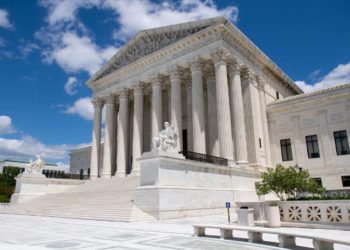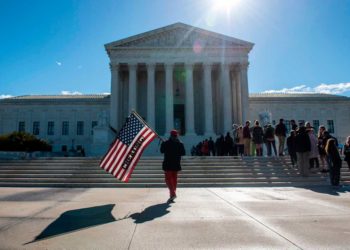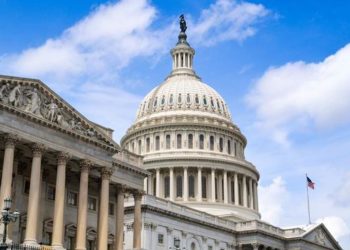The Alabama Senate has passed the most restrictive abortion bill in the United States, which places a near-total ban on the termination of pregnancy – even in cases of rape and incest – and could punish doctors who perform the procedure with life in prison.
The text passed by the Republican-led Senate Tuesday has been sent to Governor Kay Ivey’s desk for signature into law and, if approved, is expected to trigger a legal battle which its supporters hope will reach the Supreme Court.
Under the bill, performing an abortion is a crime that could land doctors who perform it in prison for 10 to 99 years. Abortions would only be legal if the life of the mother is in danger or the fetus has a fatal condition.
‘The Dark Days’
The largest human rights defense organization in the United States, the ACLU, promised to file a lawsuit to block its implementation, saying the vote showed “how little they (conservative lawmakers) regard bodily autonomy.”
“This bill punishes victims of rape and incest by further taking away control over their own bodies and forcing them to give birth,” it added.
The National Organization for Women called the bill “unconstitutional” and said its passage would “send women in the state back to the dark days of policymakers having control over their bodies, health, and lives.”
The Republican-led Senate approved the measure by 25 votes to six on Tuesday. Governor Ivey has not yet said whether she will sign the bill.
Abortion bans like the one passed in Alabama are a violation of human rights.
These bans will be deadly.
They will endanger pregnant people’s lives.
They will re-victimize survivors of rape and sexual violence by denying them their rights.
We must not go back.
— Amnesty International USA (@amnestyusa) May 15, 2019
Unlike the doctors carrying out the procedures, women who undergo abortions would not be prosecuted.
Attempts to introduce an amendment providing exceptions for pregnancies conceived due to rape or incest were shut down by the state senate.
“You just raped the state of Alabama yourself,” state Senate Democratic leader Bobby Singleton said after senators eliminated the amendment.
“You’re saying to my daughter you don’t matter in the state of Alabama … It’s ok for men to rape you and you’re gonna have his baby if you get pregnant,” he added, his voice sometimes breaking with emotion.
But Alabama Lieutenant Governor Will Ainsworth, who also presides over the State Senate, greeted the bill’s passage as a “strong step toward defending the rights of the unborn.”
“With liberal states approving radical late-term and post-birth abortions, Roe must be challenged, and I am proud that Alabama is leading the way,” he added.
‘Heartbeat’ Laws
The bill’s backers have expressly said they want to bring the case to the Supreme Court.
Now that the top U.S. court has a conservative majority in the wake of President Donald Trump’s election, some Republicans want to overturn the landmark 1973 Roe v. Wade ruling that recognized women’s right to abortion.
The challenge to Roe v. Wade comes as Trump is ramping up for a 2020 re-election campaign with abortion as a hot-button issue.
Several other conservative states are weighing or have recently implemented harsh anti-abortion laws.
The governor of the U.S. state of Georgia last week signed into law a ban on abortion from the moment a fetal heartbeat is detected, becoming the sixth U.S .state to outlaw abortion after about six weeks of gestation.
Know this, politicians: If you attack our right to abortion — whether it’s in Alabama, Ohio, Georgia, or Kentucky — we will see you in court.
— ACLU (@ACLU) May 15, 2019
Ohio, Mississippi, Kentucky, Iowa, and North Dakota have enacted similar laws, while electoral powerhouses Florida and Texas are considering following suit.
All the state bans have either been blocked by a judge or are headed for the courts.
Anti-abortion activists hope the state-by-state legal battles will ensure the so-called “heartbeat” ban is brought before the country’s top court. But Alabama’s new law, which outlaws abortion as soon as the pregnancy is known, goes further still.
States with liberal majorities, however, are seeking safeguards to the right to abortion in their own constitutions.
This year alone, 28 of the 50 U.S. states have introduced more than 300 new rules to limit abortion, according to a report by the Guttmacher Institute, which defends women’s rights.
Planned Parenthood Southeast Advocates said in a statement that it was “a dark day for women in Alabama and across this country.”
“Alabama politicians will forever live in infamy for this vote.”























